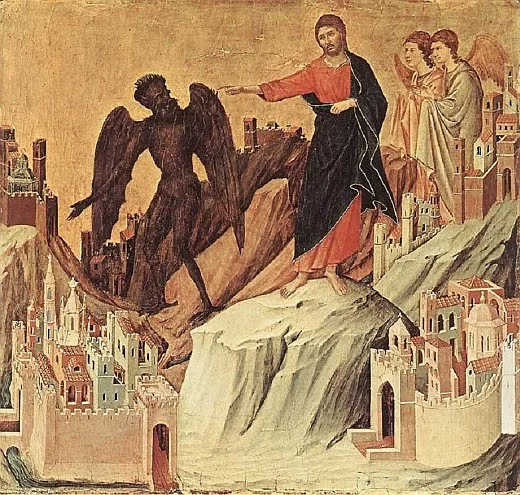The heavens declare the glory of God;
The firmament shows the creation of His hands.
Day to day utters speech,
And night to night reveals knowledge.
--Psalm 18:1-2 (19:1-2)
Imagine a universe where there is nothing else but what is in the universe. All things, stars, planets, trees, lakes, fish, birds, deer, skunks…every living thing and every non-living thing consists solely of stuff made up of the elements (carbon, hydrogen, etc.)—“star stuff,” as Carl Sagan used to say.
There is good news in this kind of universe: if we are able to understand math, physics, and chemistry well enough, we will be able to predict everything! If my thinking is only a product of chemical reactions in my brain, then by knowing my DNA and my specific chemical make-up, you would be able to predict my path through life. We could eliminate crime and control behavior by manipulating DNA and tweaking a person’s chemical balance. Perhaps we could create a utopian society if we could discover the right DNA sequence and chemical formula for the perfect human. (Making a “perfect man” in our image.)
There is more good news: we would have the answers to the biggest questions of humankind. What is my role in human history? What is the meaning of my life? What does it mean to be in love? Where did I come from? But, in this kind of universe we might not like the answers.
The view I’ve just described is called philosophical materialism…there is nothing outside material universe. It is a philosophical viewpoint held by many.
Think of the loss in such a world. Such things as love, altruism, poetry, art, literature, discovery, and heroism would not be the product of a human spirit, because there would be no such thing as a “spirit.” We would not be made in the image and likeness of God because there would be no God. Creation would have no inherent beauty reflecting the Beauty of the Creator; it would be the result of chance.
In this chapter, the author quotes St John Chrysostom, who asks:
…what could be more pitiful and stupid than people coming up with arguments like this, claiming that beings get existence of themselves, and withdrawing all creation from God’s providence? How could you have the idea that…so many elements and such great arrangement were being guided without anyone to supervise and control it?
This chapter follows the development of the Orthodox perspective on Creation; that “the act of the Son’s begetting and the Spirit’s procession are manifestations of God’s essence. The creation of the world, on the other hand, occurred in time and is the consequence of God’s activity, his energy.” (p 187).
While the Orthodox Church does not enter the debate between Creationists (old or young Earth) and Evolutionists, the Church does hold that (p 191):
- God is the Creator and Artificer of all
- Human kind did not come from apes or other animals
God made the universe, in the words of Irenaeus of Lyons and Isaac the Syrian, that Goodness be moved beyond contemplation of itself and spread forth outward…that intelligent creatures might join in the glory of God’s divine nature.
As Elizabeth Barrett Browning wrote:
Earth’s crammed with heaven
And every bush afire with God.
But only he who sees takes of his shoes,
The rest sit around and pluck blackberries…
--“Aurora Leigh,” book 7
Stop and take time to really see creation; the glory of God is being declared all around us.



